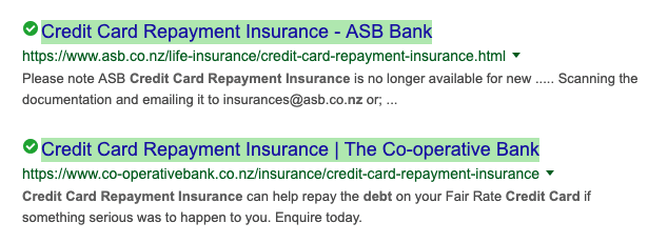Part of our job in getting you to retirement is making sure that you have the right insurances in place – like income protection, trauma, life, health insurance and checking that your house, contents and other insurances will work for you. In retirement, often the only insurance cover that you need is your fire and general insurance (house, contents etc), and possibly health insurance if it fits in your budget.
For our clients that have opted to meet us each year, we review the relevance of the cover, over time reducing the cover as your assets increase.
So, while we recommend a number of insurances to our clients, there are a number of ‘insurances’ that aren’t likely to add any value to your life.
Newsroom recently published an article at https://www.newsroom.co.nz/2019/07/31/707219/are-banks-selling-us-junk-insurance# that looks at some of these insurances and the fact that they rarely work.
The article is based on a recent report from the Australian Securities and Investments Commission about consumer credit insurance policies. https://asic.gov.au/about-asic/news-centre/find-a-media-release/2019-releases/19-180mr-asic-finds-unacceptable-sales-practices-poor-product-design-and-significant-remediation-costs-in-cci-sold-by-major-banks-and-lenders/
These insurances include credit card insurance, car loan protection insurance. Often the terms and conditions are very difficult to claim on, and many people who put the cover in place (because of the sales techniques) are never in a position to be able to claim.
Some of the findings (in Australia) include:
- In contrast, travel insurance pays out 47 cents, home and contents – 59 cents and motor vehicle insurance 89 cents.
The Newsroom investigation found that credit card insurance can cost between 74 cents and 79 cents a month per $100 you have owing, and more if you are a joint cardholder.
“They tell you you are covered for temporary illness or redundancy, so you think your debt will be repaid. But the payments are often capped and the contracts contain clauses that privilege the insurer over the consumer.
“Cover is often so restricted that the value consumers get is limited.”
While some of the banks in New Zealand have stopped selling new Credit Card Insurance policies – if you have taken a policy out in the past – you may well still be paying for it. BNZ advised Newsroom that credit card insurance is ‘part of the card set up process’.
Recommendation:
Check your credit card statement and make sure that you aren’t paying for this insurance. If you are, contact your credit card provider, get your policy details, study the terms and conditions and unless you really think you are going to claim on it, we suggest that you cancel the cover as soon as possible.



